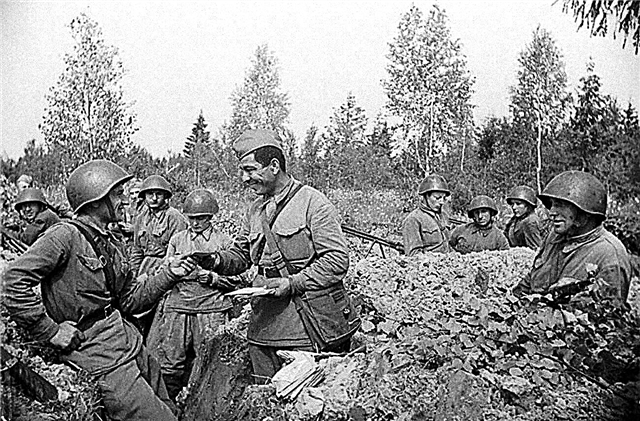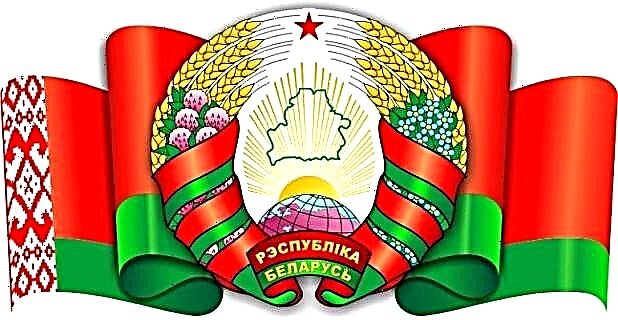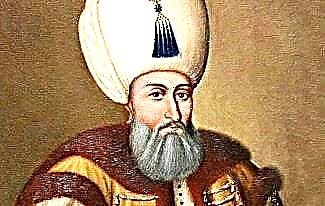Eduard A. Streltsov (1937-1990) - Soviet footballer who played as a forward and became famous for his performances for the Moscow football club "Torpedo" and the USSR national team.
As part of "Torpedo" he became the champion of the USSR (1965) and the owner of the USSR Cup (1968). As part of the national team, he won the Olympic Games in 1956.
Two-time winner of the prize from the weekly "Football" as the best football player of the year in the USSR (1967, 1968).

Streltsov is considered one of the best footballers in the history of the Soviet Union, and has been compared to Pele by many sports experts. He possessed excellent technique and was one of the first to perfect his heel pass skills.
However, his career was ruined in 1958 when he was arrested on charges of raping a girl. When he was released, he continued to play for Torpedo, but did not shine as much as at the beginning of his career.
There are many interesting facts in the biography of Streltsov, which we will talk about in this article.
So, before you is a short biography of Eduard Streltsov.
Streltsov's biography
Eduard Streltsov was born on July 21, 1937 in the city of Perovo (Moscow region). He grew up in a simple working-class family that has nothing to do with sports.
The football player's father, Anatoly Streltsov, worked as a carpenter at a factory, and his mother, Sofya Frolovna, worked in a kindergarten.
Childhood and youth
When Edward was barely 4 years old, the Great Patriotic War began (1941-1945). Father was taken to the front, where he met another woman.
At the height of the war, Streltsov Sr. returned home, but only to tell his wife about his departure from the family. As a result, Sofya Anatolyevna was left alone with a child in her arms.
By that time, the woman had already suffered a heart attack and became disabled, but in order to feed herself and her son, she was forced to get a job at a factory. Edward recalls that almost all of his childhood was spent in extreme poverty.
In 1944 the boy went to the 1st grade. At school, he received fairly mediocre grades in all disciplines. An interesting fact is that his favorite subjects were history and physical education.
At the same time, Streltsov was fond of football, playing for the factory team. It is worth noting that he was the youngest player on the team, who was then only 13 years old.
Three years later, the coach of the Moscow Torpedo drew attention to the talented young man, who took him under his wing. Eduard showed himself perfectly at the training camp, thanks to which he was able to strengthen himself in the main team of the capital club.
Football
In 1954, Edward made his debut for Torpedo, scoring 4 goals that year. The following season, he managed to score 15 goals already, which allowed the club to gain a foothold in the standings in fourth place.
The rising star of Soviet football attracted the attention of the USSR national team coach. In 1955, Streltsov played his first match for the national team against Sweden. As a result, already in the first half, he was able to score three goals. That match ended with a crushing score 6: 0 in favor of the Soviet footballers.

Edward played his second match for the national team of the Soviet Union against India. An interesting fact is that our athletes were able to win the biggest victory in their history, beating the Indians with a score of 11: 1. In this meeting, Streltsov also scored 3 goals.
At the 1956 Olympics, the guy helped his team win gold medals. It is curious that Edward himself did not receive a medal, since the coach did not let him out on the field in the final match. The fact is that then awards were given only to those athletes who played on the field.
Nikita Simonyan, who replaced Streltsov, wanted to give him an Olympic medal, but Eduard refused, saying that he would win many more trophies in the future.
In the 1957 USSR championship, the footballer scored 12 goals in 15 matches, as a result of which Torpedo took 2nd place. Soon, Eduard's efforts helped the national team get to the 1958 World Cup. The teams of Poland and the USSR fought for a ticket to the qualifying tournament.
In October 1957, the Poles managed to beat our players with a score of 2: 1, gaining the same number of points. The decisive match was to take place in Leipzig in a month. Streltsov traveled to that game by car, due to being late for the train. When the Minister of Railways of the USSR learned about this, he ordered to delay the train so that the athlete could board it.

In the return meeting, Eduard seriously injured his leg, as a result of which he was carried out of the field in his arms. He tearfully begged the doctors to somehow anesthetize his leg so that he could return to the field as soon as possible.
As a result, Streltsov managed not only to continue the fight, but even score a goal to the Poles with an injured leg. The Soviet team defeated Poland 2-0 and made it to the World Cup. In a conversation with reporters, the USSR mentor admitted that until this moment he had never seen a football player who played better with one healthy leg than any player with both healthy legs.
In 1957, Edward was among the contenders for the Golden Ball, taking 7th place. Unfortunately, he was not destined to take part in the World Cup due to criminal charges and subsequent arrest.
Criminal case and imprisonment
In early 1957, the footballer was involved in a scandal involving high-ranking Soviet officials. Streltsov abused alcohol and had affairs with many girls.
According to one version, the daughter of Ekaterina Furtseva, who soon became the Minister of Culture of the USSR, wanted to meet with the footballer. However, after Eduard's refusal, Furtseva took this as an insult and could not forgive him for such behavior.

A year later, Streltsov, who was resting at the dacha with friends and a girl named Marina Lebedev, was accused of rape and taken into custody.
The evidence against the athlete was confusing and contradictory, but the insult inflicted on Furtseva and her daughter made itself felt. At the trial, the guy was forced to confess to the rape of Lebedeva in exchange for a promise to let him play at the upcoming world championship.
As a result, this did not happen: Eduard was sentenced to 12 years in prison in camps and banned from returning to football.
In detention he was severely beaten by the "thieves", as he had a conflict with one of them.
The criminals threw a blanket over the man and beat him so badly that Streltsov spent about 4 months in the prison hospital. During his prison career, he managed to work as a librarian, grinder of metal parts, as well as a worker in a logging and quartz mine.

Later, the guards attracted the Soviet star to participate in football competitions among prisoners, thanks to which Eduard could at least sometimes do what he loved.
In 1963, the prisoner was released ahead of schedule, as a result of which he spent about 5 years in prison, instead of the prescribed 12. Streltsov returned to the capital and began playing for the ZIL factory team.
Fights with his participation gathered a huge number of football fans, who watched the game of the eminent athlete with pleasure.
Edward did not disappoint his fans, leading the team to the Amateur Championship. In 1964, when Leonid Brezhnev became the new secretary general of the USSR, he helped ensure that the player was allowed to return to professional football.
As a result, Streltsov again found himself in his native Torpedo, whom he helped to become the champion in 1965. He also continued to play for the national team for the next 3 seasons.
In 1968, the player set a record for performance, scoring 21 goals in 33 matches of the Soviet championship. After that, his career began to decline, aided by a ruptured Achilles tendon. Streltsov announced his retirement from sports, starting to train the youth team "Torpedo".
Despite the relatively short term of performances, he managed to take 4th place in the list of the best scorers in the history of the Soviet Union national team. If not for the imprisonment, the history of Soviet football could be completely different.
According to a number of experts, with Streltsov as part of the USSR national team would be one of the favorites of any world championship over the next 12 years.
Personal life
The first wife of the forward was Alla Demenko, whom he secretly married on the eve of the 1956 Olympic Games. Soon the couple had a girl named Mila. However, this marriage broke up a year later. After the initiation of a criminal case, Alla filed for divorce from her husband.
Released, Streltsov tried to restore relations with his ex-wife, but his addiction to alcohol and frequent drinking did not allow him to return to his family.

Later, Eduard married the girl Raisa, with whom he married in the fall of 1963. The new darling had a positive influence on the football player, who soon gave up his riotous life and became an exemplary family man.
In this union, the boy Igor was born, who rallied the couple even more. The couple lived together for a long 27 years, until the death of the athlete.
Death
In the last years of his life, Edward suffered from pain in the lungs, as a result of which he was repeatedly treated in hospitals with a diagnosis of pneumonia. In 1990, doctors discovered he had malignant tumors.
The man was admitted to an oncology clinic, but this only prolonged his suffering. He later fell into a coma. Eduard Anatolyevich Streltsov died on July 22, 1990 from lung cancer at the age of 53.
In 2020, the premiere of the autobiographical film "Sagittarius" took place, where the legendary striker was played by Alexander Petrov.
Streltsov Photos

















